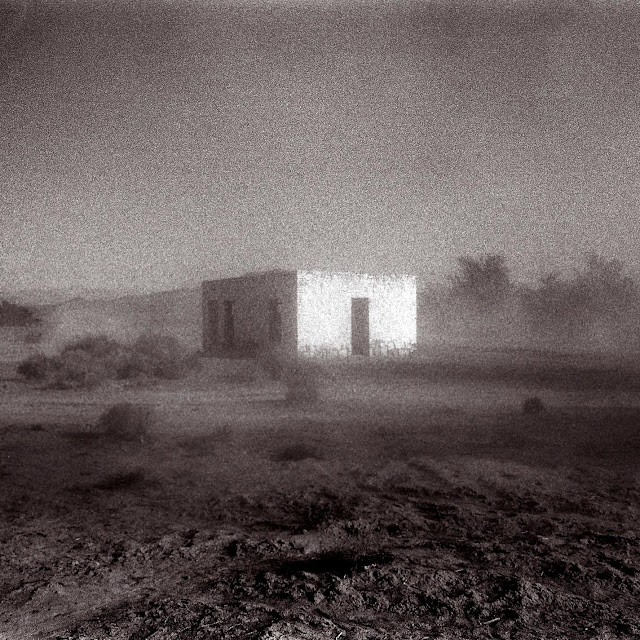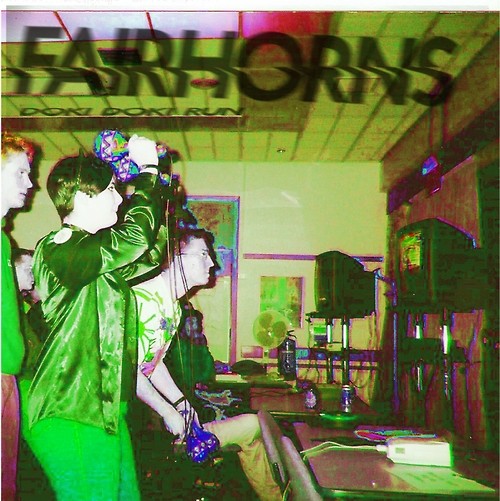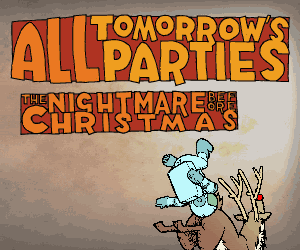
In the consciously grubby subterraneous cavern that lies beneath the faux-dilapidated Shacklewell Lane exterior, an impression of the instore overwhelms as obsessives linger more or less on the stage itself, wristbands donned, Sharpie pens at the ready. They wait. And wait. For what feels like an interminable eternity. But as soon as drummer Joseph Spurgeon emerges from the darkness to contort about sprawling cymbals and squeeze into the catacomb where his kit lies, all resentment wafts away like the dry ice that once beset the venue prior to their entrance. As Joshua Hayward's Jazzmaster howls, an oscillator vacillates wildly while Rhys Webb bobs buoyantly to the airy swell of Changing The Rain, all frigid molecules evaporating, sweat and other such moisture raining down from the ceiling. The Horrors instantaneously become that special, incontrovertibly significant band all over again. Faris is largely monosyllabic throughout, yes, although his gawky scarecrow-like figure is thrust about with the vigour of a tyke with an index finger in a plug channeling the force of the National Grid. He seems to subsist on celebration in place of confrontation and The Horrors, as a whole, appear to have become all the more healthy for it: Tom Cowan cowers behind myriad keys and cables, something of a peripheral live producer as he triggers samples and seeps Krautrock synth hypnotics on the likes of Dive In and the evening's pulsating culmination, Moving Further Away, whilst Webb, Faris' lefthand man, attracts much of the intrigue. Forever more a centrifugal force, his impact on the vaguely capricious development of the band is unmistakable, and equipped with maracas and a technicolour dreamcoat of sorts (that's understandably swiftly disposed of as temperatures skyrocket), Webb subscribes to the Bez blueprint, had Bez ever had any musical proficiency, or rhythm for that matter. Primary Colours cuts Who Can Say and Three Decades sound monumental enough to rattle the entirety of the N postcode prefix, whilst the throbbing bass line to Scarlet Fields sounds progressively more like that particular song it was excessively paralleled with all those waxed and waned moons ago. Mirror's Image and the perpetually tempestuous Sea Within A Sea still stick, although it's the unremitting electro pounding of I Can See Through You and positively Tears For Fears-ish Still Life that clinch the quintessence of their continual climb towards the figurative apex of many a music mag index.























